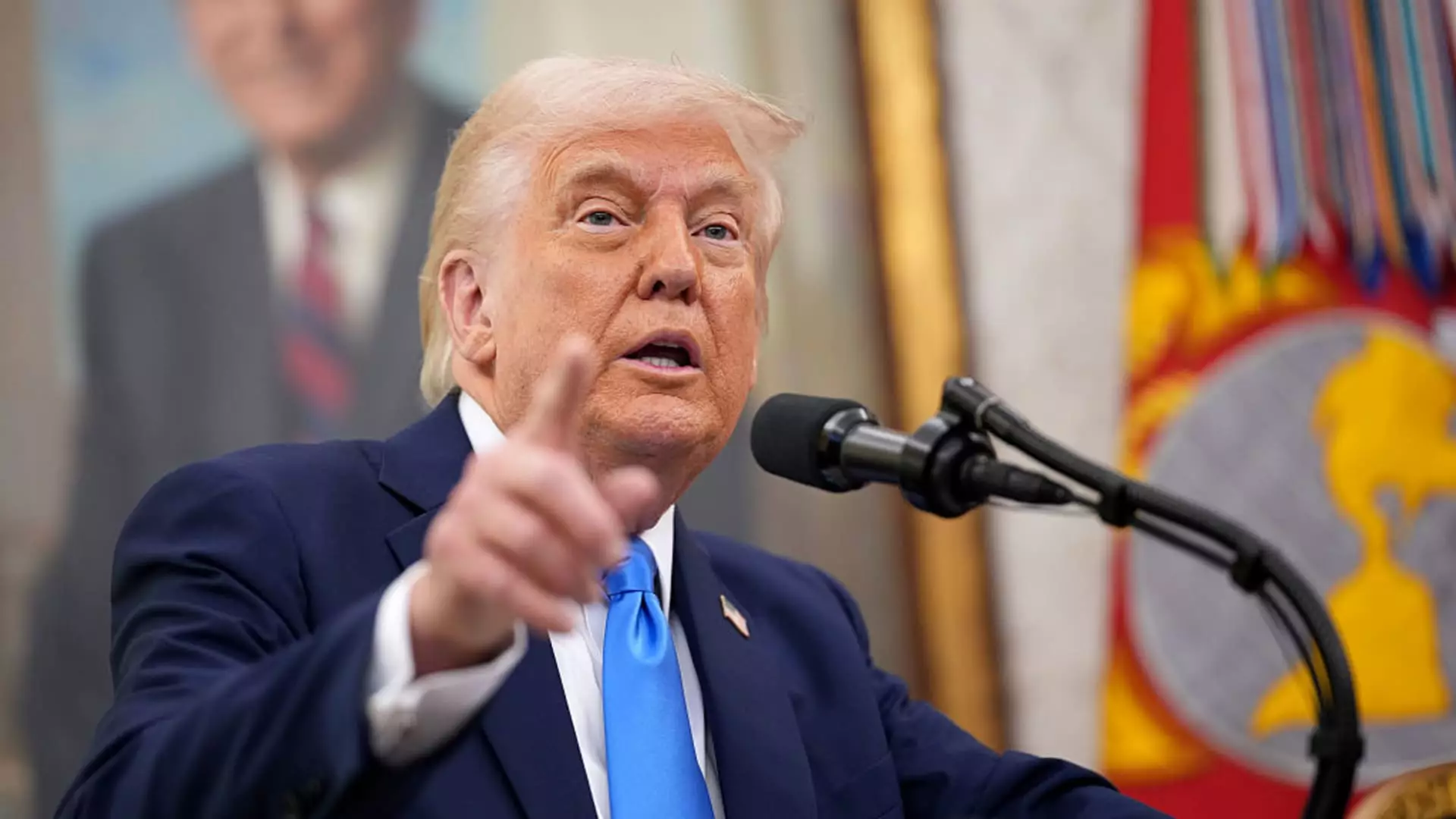President Donald Trump’s recent announcement about a new wave of tariffs has injected chaos into the already precarious world of international trade. Dubbed “reciprocal tariffs,” the scheme aims to counter nations that impose their own tariffs on American goods or engage in other trade practices that the administration deems unjust. However, the veil of secrecy surrounding the specifics of this initiative raises significant concerns. Rather than facilitating fair trade, these broad strokes threaten to create deeper fissures in America’s economic relationships with its global partners.
The administration’s promotion of these tariffs as a form of liberation is not only misleading but also dangerously simplistic. By characterizing this uncertain moment in trade negotiations as America’s “liberation day,” Trump paints a picture of a hyper-aggressive patriotism that ignores the nuanced realities of a global economy. The plan appears to be a gamble; one that may play well to his base but falters under critical scrutiny. In a time when cooperation could yield potential growth, this strategy opens the door to retaliation rather than resolution.
A Confusing and Unsupported Campaign
Further muddling the landscape, key members of Trump’s administration are dancing around the specifics of the “Dirty 15,” a term coined to identify the countries responsible for the majority of America’s trade deficits. Interestingly, neither Treasury Secretary Scott Bessent nor Kevin Hassett, chief of Trump’s National Economic Council, chose to reveal the identities of these countries. Their refusal to detail which nations will incur the brunt of tariffs only exacerbates uncertainty among American businesses and consumers alike.
As this “Dirty 15” list is purportedly constructed from nations that pose significant barriers to American goods, it raises questions about the methodology used to determine the framework of these tariffs. With the absence of clarity on how tariff rates are calculated, businesses are left in the lurch, unsure about potential price hikes and supply chain disruptions. The lack of transparency here is particularly troubling; it implies a reliance on political narratives rather than economic realities. By not naming the countries involved, the administration risks inciting unfounded fear and animosity toward various global partners.
The Economic Reckoning: Consequences Ahead
Economic analysts have noted that trade deficits are not inherently harmful and often reflect consumer demand for diversified goods at competitive prices. As the focus shifts to punitive measures against nations perceived as “taking advantage” of the U.S., we overlook the opportunity to engage with these partners to foster mutually beneficial outcomes. Instead of implementing tariffs that create a combative atmosphere, a more constructive approach would prioritize negotiation and communication.
The impending tariffs will compound an already existing array of trade barriers initiated by Trump, including tariffs on steel, aluminum, and foreign vehicles. Each new announcement breeds trepidation among affected industries. This could lead to domino effects: job losses in sectors reliant on global supply chains, increased prices for consumers, and backlash from trading partners resulting in further tariffs. The looming danger of a trade war may seem abstract to some, but for countless American workers, these decisions could yield stark repercussions in their daily lives.
The Liberal Perspective: A Need for Balanced Trade Relations
As a proponent of center-wing liberalism, I assert that the path ahead necessitates a pivot toward more balanced and equitable trade relationships rather than belligerent tariffs. The ideals of free trade should not be synonymous with unchecked exploitation; they should encapsulate values of fairness, transparency, and shared economic prosperity. Engaging diplomatically with trade partners to address grievances is more beneficial than the broad strokes of blanket tariffs that isolate the U.S. economically.
The rhetoric of “America First” can surely resonate during campaigns, but as we navigate a complex global marketplace, the victory resides not in isolation but in collaboration. Tariffs may yield temporary political applause, but they ultimately risk alienating potential allies and stifling economic growth. Rather than celebrating an isolated victory against perceived adversaries, the focus should be on fostering dynamic relationships that reinforce American prosperity while respecting the global trading framework. Such a shift could uplift not just the economy, but the social fabric of a nation that thrives on diversity and interconnectedness.

Leave a Reply